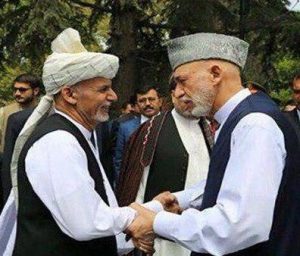Possibility of Election Delay and that Why Karzai Not Support Interim Administration
Finally, it can be concluded that the democratic election process has been sacrificed under the cover of peace prospects and the political deals are among some faces.

Former Afghan president Hamid Karzai in an interview with BBC said that he is against interim administration. Since he was considered as a fan of the interim government, this stance has unprecedentedly shocked the country’s media and political space.
After president Ghani attended Munich security conference, meeting officials from various countries, these issues “holding presidential elections delayed till signing a peace treaty, the work of the current administration extended and there is no word about the interim administration” have spread across the country’s political space.
Mr Karzai’s remarks about the interim government appear to be related with the current government’s tenure until signing a peace deal because, in the past, Hamid Karzai has always raised voice about holding Loya Jirga which according to that should be followed by forming a temporary administration.
It is now understood that Moscow summit led by Hamid Karzai and the presence of the majority of politicians in it, put enough pressure on the presidential palace to accept holding Loya Jirga (grand assembly) while on the other hand, Hamid Karzai gave up interim administration by getting the privilege of holding Loya Jirga in a political competition.
In fact, after the Moscow meeting and even before holding it, the Afghan government had unprecedentedly afraid of it. High-ranking members and government spokespersons reacted one after another, saying that the meeting does not have executive power and meant to weaken the government.
Now, it seems that Karzai had reached his goal and made the government hold Loya Jirga. Therefore, it was a necessity to give up an interim administration in return for such privileges.
The final analysis of the presidential palace may have been this that by holding the Loya Jirga, on the one hand, can neutralize Moscow peace meeting and, on the other hand, extends the life of the government without an election. The presidential palace has come to believe that if it is possible to continue the government’s work without elections and competition, then giving the privilege of Loya Jirga to the rivals is not a heavy compensation as Mr Ghani has major plans for another five years.
Finally, it can be concluded that the democratic election process has been sacrificed under the cover of peace prospects and the political deals are among some faces.